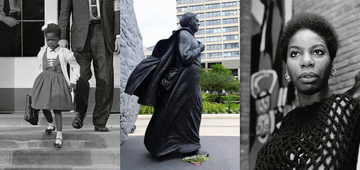- 10 April 2025
Of the 1,617 complaints made to Save Face in the last year:
- Four in five (81%) complainants were not required to give appropriate consent prior to treatment. They were not:
- Asked about their medical history
- Informed about possible complications
- Asked to sign a consent form
- Three quarters (76%) of complainants were not told which product was used.
- Over 4 in 5 (82%) complainants were ignored or ‘blocked’ by their practitioner when they sought help.
- Over three quarters (78%) of complainants believed that their practitioner was uninsured or saw no evidence of adequate insurance.
- The vast majority (93%) of complainants were not made aware that any serious complications could occur and believed that the procedures were low risk beauty treatments.
The findings highlight a significant risk to the public when cosmetic procedures are performed by practitioners without appropriate safety training or qualifications. The figures also reinforce the importance of seeking treatment with qualified healthcare professionals, who are accountable for the care they provide and know what to do when something goes wrong.
These concerns have prompted the Royal Society for Public Health (RSPH) to join forces with the Qualification Council for Cosmetic Procedures (QCCP) to develop new RSPH-regulated qualifications in non-surgical cosmetic procedures.
The qualifications are the first of their kind in the UK and will provide much-needed reassurance to the public when choosing a practitioner to carry out cosmetic procedures. The new qualification will be available to all 20,000 prescribing healthcare professionals – including doctors, nurses, pharmacists, and dentists – and is an acknowledgment that even qualified healthcare professionals require additional training for what is a specialist area.
The new qualifications have been developed by the QCCP and RSPH to promote the teaching of an essential curriculum, leading to an accessible examination and certification.
The first qualifications being offered are:
- Medical Aesthetic Certificate: Understanding the Safe Use of Botulinum Toxin in Cosmetic Procedures
- Medical Aesthetic Certificate: Understanding the Safe Use of Dermal Fillers in Cosmetic Procedures
Attainment of these qualifications will demonstrate that the practitioner has the requisite knowledge and understanding to carry out these procedures safely.
Duncan Stephenson, Deputy Chief Executive of RSPH, said: “Demand for non-surgical cosmetic procedures is believed to have increased as a result of the “Zoom boom” – with the explosion in online video-calling encouraging many more people to seek ways to enhance their appearance on-screen. This research from Save Face is extremely concerning – particularly the lack of aftercare or support when things go wrong. It is also worrying that these treatments are often carried out by unqualified practitioners taking advantage of the public’s growing appetite for anti-wrinkle injections and dermal fillers.
"These types of procedures can go wrong when performed by individuals without the necessary knowledge, understanding and competence. And bungled procedures can cause irreversible damage to a person’s physical appearance and mental health. We are, therefore, pleased to have partnered with the QCCP to develop this qualification – to support healthcare professionals who administer these treatments and provide much-needed reassurance to the public – so that we can help tackle many of the issues that Save Face has to deal with on a daily basis."
Gillian Murray, Lead Member of Council at QCCP, said: "We are excited to be working with The Royal Society for Public Health in bringing a suite of RSPH-regulated qualifications together for the cosmetic procedure industry. Current levels of education and training are not standardised across the UK among aesthetic practitioners. This gives rise to different practice standards and allows misleading claims of competence.
“The qualifications produced by the QCCP will give the practitioner a curriculum to work to and provide assurances that training providers are teaching to produce competent practitioners. Having a certificate endorsed by RSPH will help to underline and establish the medical model of practice, allowing the practitioner to have confidence in their level of training.”



